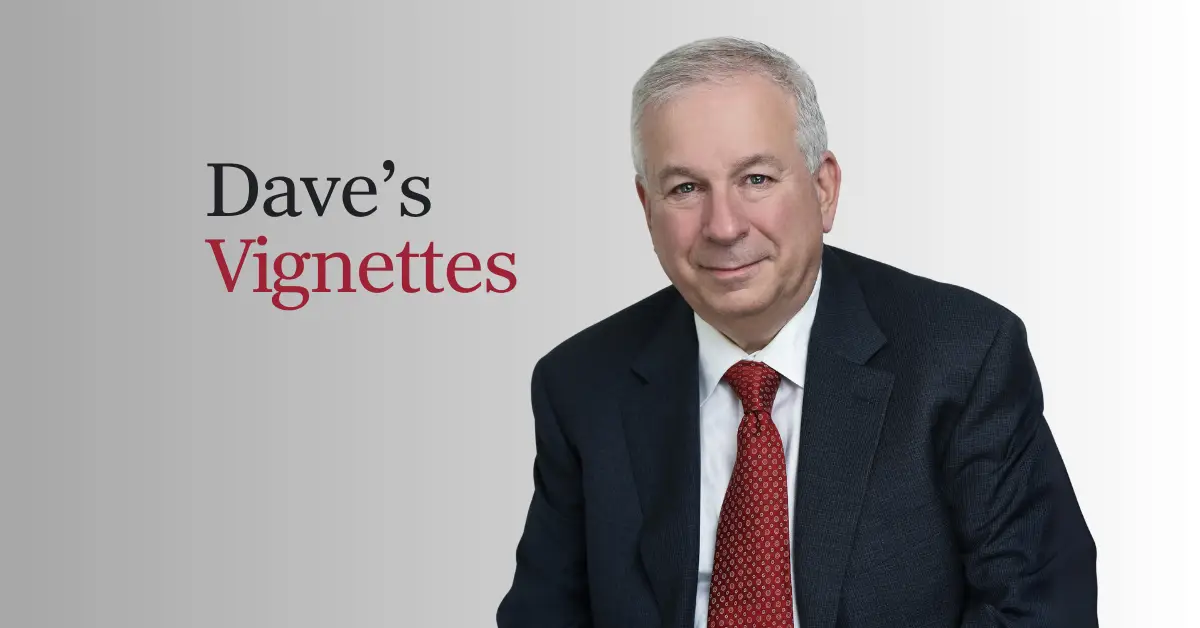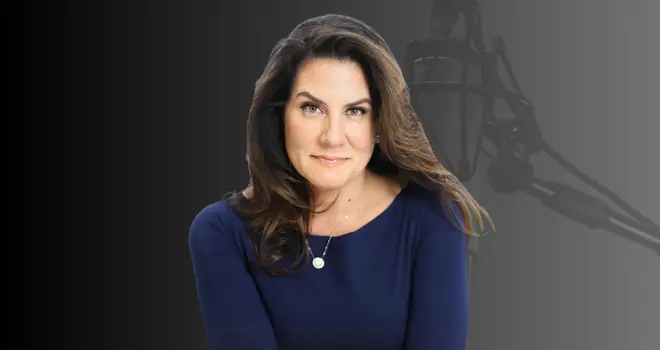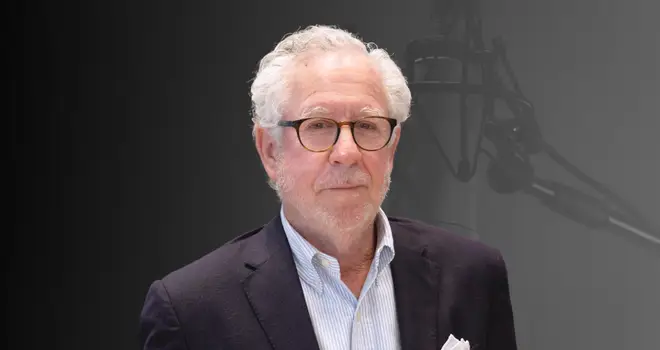I participated in a webinar last week for a charitable organization and was asked to kick things off with something personal. So, rather than diving right into the markets and the economy, I started the evening
with a story, which I’ll share with you now.
A friend’s son had just started working in the capital markets side at Bank of Nova Scotia. He called recently to ask me about the “secret to success”. My initial reply was a bit glib: I told him that he should
maintain a healthy level of paranoia at all times. At his request, I elaborated by telling him — as I have shared with you folks — that my real claim to fame was having started at the very same major bank
on October 19th, 1987. That’s right. The day of the market crash.
I had been with Canada Mortgage and Housing Corporation (CMHC) for the prior three years in Ottawa, where I had been hired as a housing policy economist right out of grad school. It was an
interesting start because that was when Brian Mulroney became Prime Minister after the Conservatives had been out of power for decades (aside from the brief Joe Clark government in 1979-80). The
Conservatives were busy evaluating every single Liberal program (many of which had been around since 1954), and with housing being an area of particular focus, there was a lot for me to do.
The experience at CMHC taught me a great deal about cost-benefit analysis, but also a great deal about government bureaucracy, which was of less interest to me. So even though I was steadily promoted
and learning a lot while in Ottawa, what I really wanted to do was go to Toronto. I knew nothing about Bay Street, but that’s where I felt I’d fit in best; call it intuition. I applied to the economics departments at all the big banks.
My sole offer was from the Bank of Nova Scotia, for a junior economist position at C$27,500 a year. In Ottawa, where the cost of living was lower, I was a senior policy analyst at CMHC earning C$32,000. When
I told the folks at Scotia about the disconnect between their offer and my current salary and title, they said, “David, ‘junior’ in Toronto is what ‘senior’ is in Ottawa, and we can’t budge on salary.”
I was going to turn down the offer until my dad said to me: “Dave, sometimes in life you have to take a step back to take two steps forward. Before you turn them down, look at the forest past the trees, look at where you will be if you stay in government five or ten years from now, and where you think you will be if you take this offer.”
That was Dad. I’ll never forget his advice. I took the job. So, day one was October 19th. I still remember the traders on the trading floor hanging from the chandeliers. It was panic and pandemonium. At the time, if I had the chance to get a return ticket to my cushy job in Ottawa, I would have taken it in a heartbeat. Instead, all day long I followed my new bosses, chief economist Bill Mackness, assistant chief economist Warren Jestin, and my direct boss, head of financial markets Aron Gampel. And I got to meet all the senior people at the bank, among them Cedric Ritchie, Gordon Bell, Peter Godsoe, and Bob Brooks. Literally a “Who’s Who” of Canadian banking. Look them up.
At each meeting, I stood at the back of the room changing my underwear by the hour. My three bosses presented a series of charts for all the senior brass that the crash had been a liquidity event only,
not a fundamental event. They said that the Fed and the Bank of Canada were going to infuse tremendous amounts of liquidity into the financial system and this would be over in a week, and that the bank should be buying the market. I remember thinking at the time, “Holy smoke, economists who actually call the market. These guys are fearless.” It was only then that I began to feel that “cool economist” wasn’t an oxymoron, and you can actually be cool and be an economist at the same time. Warren Jestin and Aron Gampel had ice in their veins.
I learned on day one in this business that to be an effective market economist, you can’t just do GDP. You have to attach market calls to your forecasts. You have to take all the economic data points and
then connect those dots to a cogent, coherent and cohesive investment strategy. Because in the end, everyone wants to know how they can make or save money.
Knowing full well the value of being able to shadow the best in the business, I told my friend’s son that he should actively seek out mentors and not assume they will just magically land in his lap. I told him further that there is nothing that can replace experience and, further still, that we’re never too old to learn.
Senior management at the bank didn’t buy into Bill, Warren and Aron’s view. Like most people at the time, the brass thought that the world was coming to an end, and so in the days post-crash they cut
half of the bank’s research budget, including economics research. Within weeks, half of the economics department was let go, and I remember Aron telling me one morning to stay in my office all day and
not come out. I was so freaked out that I think I hid under my desk. That evening, there was a farewell party for those who were packaged out. Some of them had been at the bank for 25 years. Unfortunately for them, layoff decisions were made by applying a survival of the fittest philosophy, not by seniority. Everyone was hugging each other and crying. I was the new kid on the block, and I remember saying to
myself that I was never going to have that happen to me. Or if it did, my boss and my boss’s boss would be falling on their swords at the same time if they ever had to let me go.
For the next six months, I was supposed to be mentored by one of the senior economists because, quite frankly, I didn’t know my ass from my elbow. There was nothing I had learned at graduate school in
economics or at CMHC that was going to help me on Bay Street. With all the layoffs, that plan fell to the wayside in favor of on-the-job training. I did have a tutor in the economics department, but she left
for a promotion at Royal Bank of Canada a few weeks after I started, and I was told I had to pick up all the slack. In other words, sink or swim in a pool of sharks with no life preserver!
The “slack” included presenting at all the morning meetings to the treasury group, which was intimidating to say the least, but also meant that I had to start writing all these publications six months ahead of schedule and with no training. For weeks, draft after draft came back from Warren and Aron totally rewritten and with red x’s all over them. I actually did think at one point I was going to be fired. But
I took hold of myself and turned that paranoia into action.
After a good cry, I called my pals and told them not to bug me to go out to the pubs.
I went into the office on a Saturday and photocopied everything — I mean everything — that Warren and Aron had produced for the prior three years. And remember, these were the days before the Internet.
I stood at the photocopier for so long it’s a miracle I’m alive today with all those rays flashing at me. By the end of that afternoon, I took home six boxes of everything they had published and spent the next three weeks reading and re-reading while telling myself, “You are going to get in their heads and figure out what makes them tick.”
Sure enough, a week or two later, a report I wrote was returned to my desk unblemished. I went to Aron’s office, but he wasn’t there, so I proceeded to Warren’s office. Warren was soon to become the chief
economist, and I stood with great trepidation at his door and said, “Warren, I gave this piece to you and Aron to review and it was sitting on my desk without a mark. Did you have a look at it?” Warren tried
hard not to smirk, but he did and said, “Dave, you finally get it.” Well, I went out on such a bender with my buddies that night that I ended up showing up to work the next morning wearing two different
shoes. One had tassels and one didn’t (remember, it was the 80s), and I had the morning meetings to do on the trading floor. Small price to pay.
In addition to recommending a healthy dose of paranoia-induced initiative and showing him the value of hard work, I told my friend’s son that I was sure that the Bank of Nova Scotia gets tons of CVs from
candidates who have a high IQ. But you see, IQ is really a commodity and it can be taught. EQ, however, is different. It’s all about character, integrity, responsibility, ownership of mistakes, teamsmanship and
trust. Those are qualities you cannot teach; and it’s your EQ that will make the important difference in your ability to make clear decisions, your relationships with colleagues and clients and, ultimately, your success.
Recognizing our new venture at Rosenberg Research, the kid said to me, “It must be good for you not to have a boss anymore.” To which I replied: “Actually, I have more than one boss; I have over 4,000 of them,
otherwise known as my clients, and the reality is that you never stop having a boss even when you think you don’t have one.”
Anyway, I’m not sure this story won me any Dale Carnegie awards at the webinar, but at least you folks know something about me that you didn’t before. And maybe it helps explain some of the secrets to my
pursuit of success on the Street!


